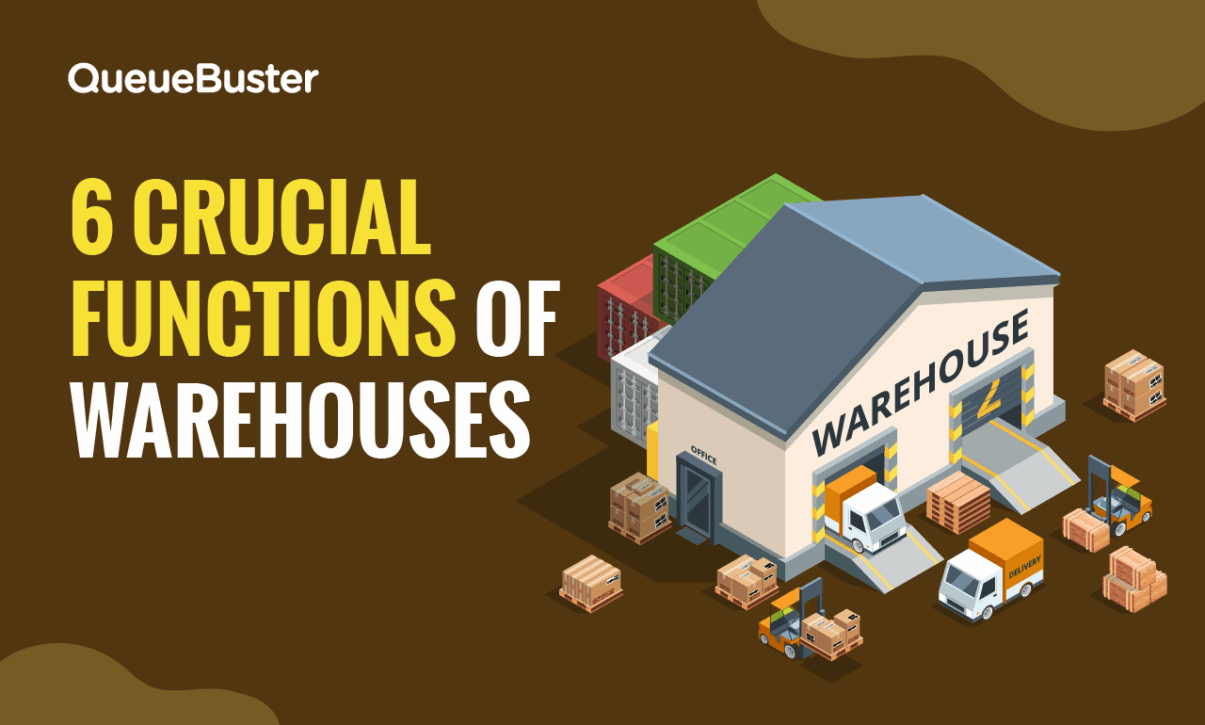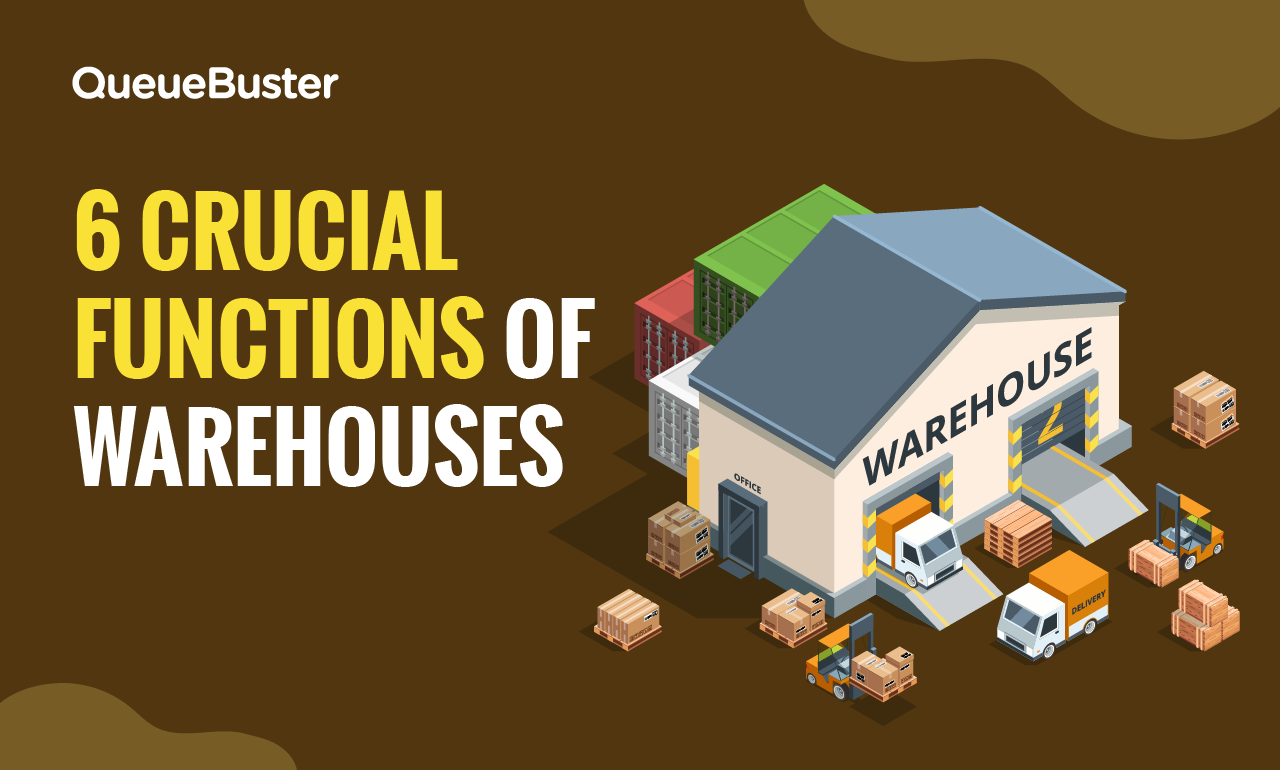
6 Crucial Functions of Warehouses
6 Crucial Functions of Warehouses

By Charu Gupta Published: July 10th, 2025
In today’s competitive market, efficient supply chain management is not just an advantage, it’s a necessity. From small-scale retailers to large e-commerce players, businesses depend heavily on their ability to store, manage, and move goods effectively. That’s where warehouses step in as the silent backbone of business operations.
Warehouses are no longer just storage spaces; they have evolved into strategic hubs that ensure smooth product flow, timely deliveries, and customer satisfaction. If you’re a business owner wondering why warehousing is essential for your operations, this blog will break down the 6 crucial functions of warehouses that can make or break your supply chain.
1. Storage of Goods
The primary and most obvious function of a warehouse is to provide safe storage for raw materials, semi-finished goods, and finished products.
- Keeps goods protected from theft, damage, and harsh weather
- Enables businesses to stock products for future sales or seasonal demands
- Helps maintain a steady supply of products despite fluctuations in market demand
For example, a clothing brand can store its winter collection months before the season begins, ensuring ready availability when customers start shopping.
2. Efficient Inventory Management
Modern warehouses are equipped with inventory tracking systems and automated tools that make stock management seamless.
- Keeps real-time records of stock levels
- Helps in identifying slow-moving and fast-moving items
- Reduces the risk of overstocking or stockouts
By maintaining accurate inventory data, businesses can plan production and purchase cycles more effectively, reducing operational costs.
3. Facilitating Timely Distribution
Warehouses are key distribution hubs that ensure the right products reach the right place at the right time.
- Products can be sorted and shipped to different locations without delays
- Supports last-mile delivery efficiency for e-commerce and retail businesses
- Reduces transit time for customers located in different regions
For instance, Amazon uses multiple strategically located warehouses (fulfillment centers) to deliver orders faster, improving customer satisfaction.
4. Risk Management and Protection
Another crucial function of warehouses is protecting goods against risks such as damage, theft, and spoilage.
- Modern warehouses use climate-controlled storage for perishable goods
- Insurance coverage and security systems reduce the financial impact of potential losses
- Proper packaging and handling prevent damage during storage and movement
By mitigating these risks, warehouses allow businesses to safeguard their investments and maintain smooth operations.
5. Value-Added Services
Many warehouses today go beyond just storage and offer value-added services to support business operations. These services include:
- Product labelling, packaging, and barcoding.
- Kitting and assembling components for faster delivery
- Quality checks and returns management
These additional services save time, reduce costs, and enhance overall supply chain efficiency.
6. Stabilizing Prices and Supply
Warehouses play a significant role in balancing supply and demand, which indirectly stabilizes prices in the market.
- During low-demand periods, goods can be stored instead of sold at a loss
- During peak-demand periods, pre-stored inventory ensures uninterrupted supply
- Reduces dependency on emergency production or costly imports
This function is especially important in industries like agriculture, where products are seasonal, but demand exists year-round.
Final Thoughts
Warehouses are more than just storage facilities, they are critical business assets that support smooth operations, minimize risk, and enhance profitability. From storing goods securely to facilitating timely deliveries and offering value-added services, their role in modern supply chains is indispensable. You can also use an efficient POS solution for proper inventory tracking inside your warehouse.
Whether you are a small retailer, a growing e-commerce startup, or a large manufacturer, efficient warehousing can give you a competitive edge by improving customer satisfaction and reducing operational bottlenecks.
Investing in the right warehouse setup or partnering with a reliable warehousing provider ensures that your business is always ready to meet market demands, efficiently, safely, and profitably.
Popular Posts

MEWA India 2026: Showcasing QueueBuster POS to the Global Dry Fruits Industry
MEWA India 2026 was not just another industry event for us, it […]

Why Merchants Must Accept Tap to Pay Payments by 2026
The way customers pay has changed rapidly over the last few years […]